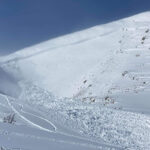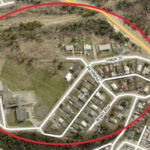Home »

11 camping sites added to local rec area
Eleven of the 431 new campsites announced for BC Parks and forestry recreation sites around the province are located in the East Kootenay, a joint Ministry of Environment and Climate Change Strategy and Ministry of Forests, Lands, Natural Resource Operations and Rural Development press release outlined.
The announcement was meant to coincide with Parks’s Day, July 21.
The 11 sites have been added to the Englishman Creek recreation site off Kikomun-Newgate Road, 12 km south of Cutt’s Koocanusa Campsite and Marina.

“People are passionate about spending time in our beautiful provincial parks, and that has increased demand for camping opportunities,” said George Heyman, Minister of Environment and Climate Change Strategy. “The additional campsites, combined with upgrades to existing facilities, will improve the overall experience of B.C.’s natural beauty and provide a range of camping opportunities for everyone to enjoy.”
Ranging from backcountry to group camping, the new campsites are a mix of BC Parks and forestry recreation sites in areas with the highest demand: the Kootenay Rockies, Thompson Okanagan, Lower Mainland and Vancouver Island.
“With the expansion, there are now 11,000 camping spaces at 1,100 recreation sites around the province, for those who enjoy a more rustic experience,” said Doug Donaldson, Minister of Forests, Lands, Natural Resource Operations and Rural Development.
Along with the additional campsites, existing facilities and infrastructure have been upgraded or added in many campgrounds. This includes roads, water taps, power, dishwashing stations, accessible toilets, trails and a new large shower building at the Hampton campground in E.C. Manning Provincial Park. A new playground has been installed at Shuswap Lake. Walk-in sites at Montague Harbour all have individual food caches.
“The expanded mix of BC Parks and forestry recreation site campsites is very welcome news,” said Joss Penny, chair, Camping and RVing BC Coalition. “More than two million campers from B.C., Alberta and Washington are expected to camp or RV in British Columbia in the next two years.”
Held on July 21, Canada’s Parks Day is an annual event that highlights the importance of parks in creating and maintaining healthy ecosystems, protecting critical habitat for species at risk, and contributing to human health and well-being. Educational and family-oriented events will be held in parks and historic sites across the country.
British Columbia’s provincial parks receive more than 21 million visits each year.
There are 1,033 provincial parks, recreation areas, conservancies, ecological reserves and protected areas, covering more than 14 million hectares, or approximately 14.4% of the provincial land base.
BC Parks manages the third-largest parks system in North America, exceeded only by the United States’ National Park Service and Parks Canada.
As of June 30, BC Parks had nearly 168,000 reservations made through the Discover Camping reservation service, with the majority of reservations originating within B.C.
Of the 10,700 campsites BC Parks manages, approximately 55% are reservable, and 45% remain available on a first-come, first-served basis.
e-KNOW







